 American actor James Cobrun had a long and varied career that stretched from 1957 to his last role in 2002. He got his start playing tough guys in westerns on TV and then on the large screen, including his break out role in The Magnificent Seven (1960). He starred in the 1963 classic, The Great Escape, then rode the mid-sixties spy film craze with Our Man Flint (1966) and In Like Flint (1967). He spent the seventies appearing in action, crime and Westerns. Most of which were pretty average, notable exceptions being Pat Garrett and Billy the Kid (1973) and Walter Hill’s wonderful 1973 boxing film, Hard Times. The eighties and nineties were similarly varied in terms of his output, the highlight being Affliction, the 1999 film that won him a best supporting actor Oscar.
American actor James Cobrun had a long and varied career that stretched from 1957 to his last role in 2002. He got his start playing tough guys in westerns on TV and then on the large screen, including his break out role in The Magnificent Seven (1960). He starred in the 1963 classic, The Great Escape, then rode the mid-sixties spy film craze with Our Man Flint (1966) and In Like Flint (1967). He spent the seventies appearing in action, crime and Westerns. Most of which were pretty average, notable exceptions being Pat Garrett and Billy the Kid (1973) and Walter Hill’s wonderful 1973 boxing film, Hard Times. The eighties and nineties were similarly varied in terms of his output, the highlight being Affliction, the 1999 film that won him a best supporting actor Oscar.
I have always liked Coburn for reasons I’ve found it hard to identify. I wouldn’t say he was a great actor. In nearly all the films I’ve seen him in the word that comes to mind to describe his performances is solid. He did have charisma of sorts and was good looking in an unconventional way, especially when he flashed that giant grin of his. I think I probably like him because of his work in the sixties and seventies, one of my favourite periods of US film making.
Like a lot of well-known American actors, Coburn’s film output got a little weird in the late sixties, as changing movie tastes and the increasing influence of the counter culture threw the Hollywood studio system into a brief crisis and all sorts of strange and wonderful films, that would normally never have had a chance of funding, were made. He starred in The President’s Analyst, a bizarre and trippy 1967 film about a man who becomes the psychoanalyst to the President of the United States. What he learns traumatises him and puts his life in danger, as elements of the American intelligence establishment believe he knows too much to be allowed to live. He followed this up with the strange, discursive, Duffy (1968). He stars opposite Susannah York, as a cunning master criminal who is hired by the son of a rich man to hijack a boat carrying a large chunk of his father’s fortune.
There is one particularly rare late sixties Coburn film I’ve always wanted to see, the 1969 film, Hard Contract. It is not available on DVD and I’ve had trouble tracking it down, until a copy surfaced on what is rapidly becoming my retro film channel of choice, YouTube.
In Hard Contract, Coburn plays John Cunningham, a cold, clinical CIA hit man. The film opens with him dispatching his latest target in a New York cinema (we have no idea who the victim is), then going to vote in city elections. He’s a Republican, much to the chagrin of the liberal minded call girl he spends the rest of the afternoon with (played by Karen Black). As befits Cunningham’s detached attitude to life, he is incapable of having normal relationships and only sleeps with prostitutes.
Cunningham meets his CIA handler, Williams (Burgess Meredith), a former leftwinger who is also a College professor, and is offered a “hard contract”, so called because it will involve Cunningham killing three people within a strict one-month time frame. Two of the targets are in Spain, one in Belgium. The identity of the second target in Spain won’t be divulged to him until he eliminates the first two. As is often the case in hitman films, Cunningham accepts the contract because the money is so much he’ll be able to retire from the contract killing game for good.
While casing out his first target in a Spanish holiday town, Cunningham meets American socialite Sheila Metcalfe (Lee Remick). Sheila is at a loose end after her latest failed marriage and hanging with a strange entourage of louche Euro-trash types, including Adrianne (German actress Lilli Palmer), her companion Maurice (French actor, Claude Dauphin) and Alexi (Patrick Magee), a rich former Nazi infatuated with Sheila and who Sheila taunts about his past killing Jews in concentration camps.
After a shaky start, which includes Cunningham mistaking Sheila for a prostitute, a mix up Sheila plays along with at first, the two fall in love. As their relationship deepens, Cunningham finds he no longer has the stomach for his job. He kills the first target in Spain and travels to Belgium (via a strange detour to Tangiers), where he throws the second target out an apartment window, but his heart is just not in it.
Things become even more complicated when he discovers the third target, a man called Carlson (Sterling Hayden) was Cunningham in a former life before he grew tired of killing people for the American government and retired to the Spanish countryside. Despite threats by Williams that Cunningham and Sheila’s lives are in danger if the assassin does not complete the contract, Cunningham decides murder is obsolete. It’s not quite Godspell, but in true late sixties counter cultural style, he and Sheila damn the possible consequences and run away together. The last scene shows them making love in a clearing in the woods.
Hard Contract was a box office flop, which Coburn blamed on the film’s writer and director, S Lee Pogostin. Pogostin was a well-known writer, mainly for television, but he’d never directed a feature film before and it is easy to see he was out of his depth. According to Coburn, the actors more of less took over the film and directed them selves. Coburn affects an air of detached suaveness and Hayden sleepwalks through his part. The highlight is Remick, an actor I’ve never much cared for, who is great as the free spirited, good natured peacenik-type, Sheila.
The script is disjointed and full of lengthy sequences in which the characters discuss capitalism, the morality of war and killing and different philosophical approaches to life. With the exception of a long discussion between Cunningham and Carlson in the middle of a field of wheat in Spain, these don’t go anywhere or feel like they have much relation to the story.
That said, despite its abundant flaws, like so many late sixties American films, it has its charms. We get to do a bit of picturesque globetrotting between Spain, Europe and Tangiers. Cunningham gets caught in a violent political demonstration in Belgium and he and Sheila run away in the middle of gypsy wedding in Spain. Fans of late sixties interior design will also dig the extended scenes in various casinos, bars and hotel suites, where Sheila and her entourage spend their time.
Not a great film but an entertaining one and a fond reminder of the time when Hollywood was beset by uncertainty.

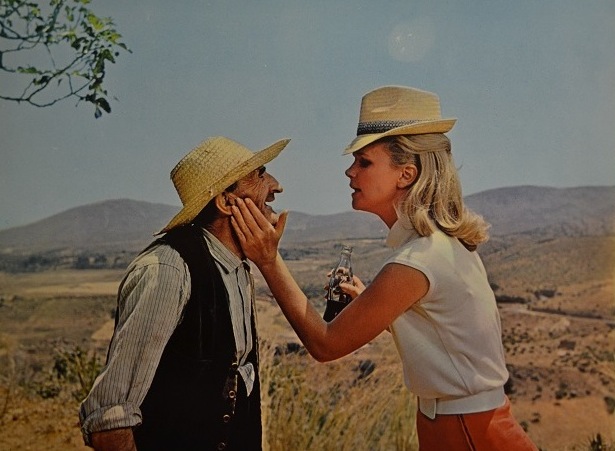
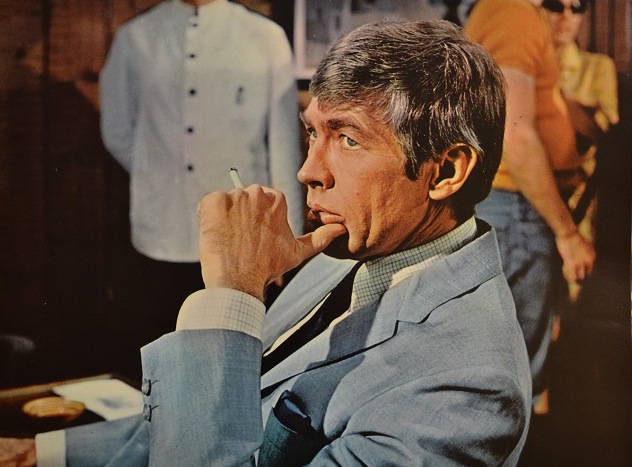
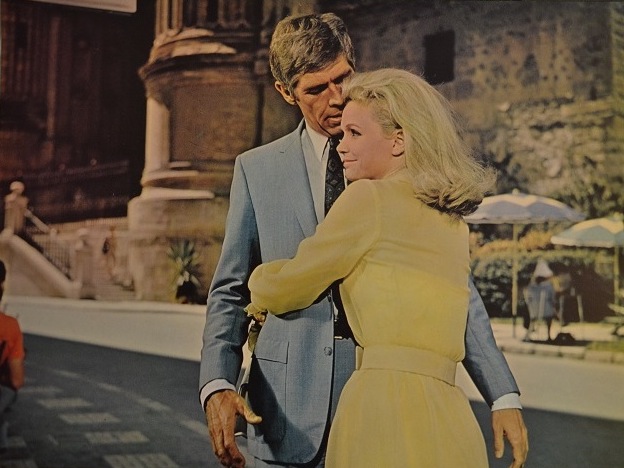
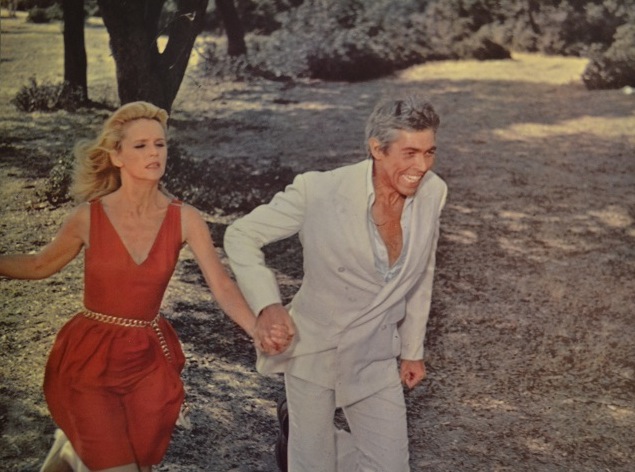
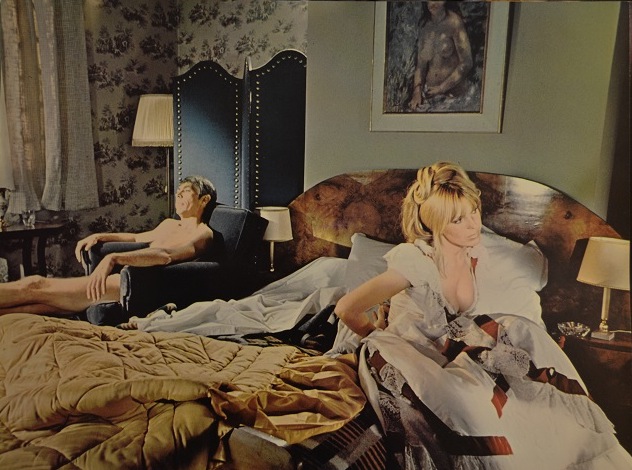



















One of the most underrated actors of all time. His role as Speed in Hard Times was his best. A degenerate gambler who manages street fighters in Depression era New Orleans and then gets in debt to the wrong element. He had that swagger that suggested an iconoclasm befitting the era. Thanks for the post.
I love HARD TIMES. Such an underrated film.
I should add, for those interested in checking HARD CONTRACT out in full, here is the link to the film on YouTube
https://www.youtube.com/watch?v=5nTuujim47c
it’s very odd……saw a bit of this film about a year ago and have been wanting to see it in its entirety ever since….it was on FXM this morning so finally was able to see it. Don’t know why, but I love it. Maybe just because it is so odd. It’s a jazzy sort of thing, full of stops and starts and things you thought would go *here* but go *(t)here* instead. Absolutely loved that long convo in the field. But, question: did the final shot of the film mean that Cunningham and Sheila were (obsoletely) murdered?
Glad you finally got to see it. As I said in this piece, Jan, I think there are lots of reasons to like HARD CONTRACT, most particularly Coburn and Remick, who are great together. It has been a little while since I have seen it, but I do remember thinking the the ending was ambiguous. One possibility is they escaped to a new life. The other is that they were killed. The script, for all its problems, does not feed the viewer the answer, which I liked.
Andrew
I liked that, too, Andrew. It is nice when we’re not spoon-fed the answers. For myself, I think they were killed.
James Coburn always left me feeling so frustrated; he occupied a place deep in my gut, a universal and ambiguous character, but he, as an actor, was never allowed to explore a wider range of development, like Steve McQueen or William Holden. Lee Remick was underrated in this underrated (because intentionally morally -ambiguous) film, because she was really trying to widen her range, and she demonstrated she could do it. For me, it was one of the most authentic, convincing portraits of a member of a scattered-brain “jet-set” brought into a field of hard choices, both morally and emotionally. She convinced me. James Coburn wasn’t given enough scope to convince me. The ending had to be ambiguous.
Remember it vividly after all these years. I was the stand-in (doble de luces) for Lily Palmer on Hard Contract, while they were filming in Southern Spain. I was only 19 at the time but had her height and colouring. It was such an adventure. Good pay too!
I was on location (day and sometimes night) at the Hotel Al-Andalus, the beach of the Hotel Pez Espada, and out in the (very hot) countryside around Coín. The very famous cameraman Jach H. and his crew were delightful people.
Patricia,
That is just wonderful. I love it when people who have been in the movies I write about leave comments. Thank you. I would love to know, what was Coburn like to work with?
Cheers,
Andrew